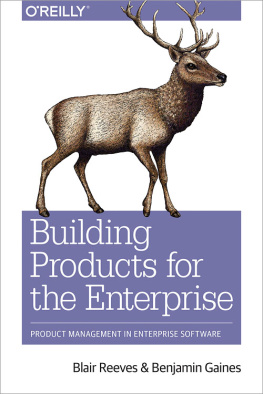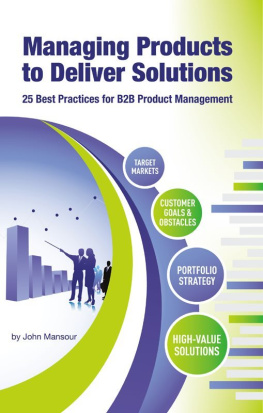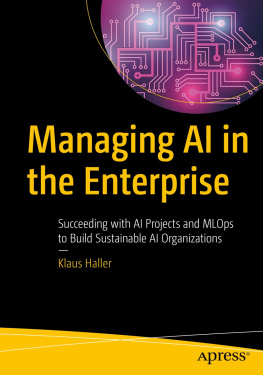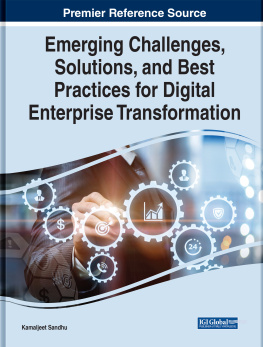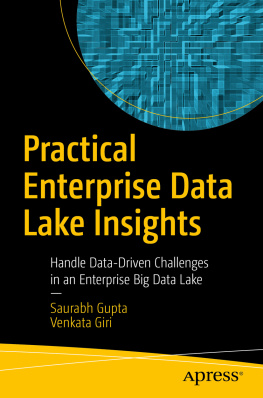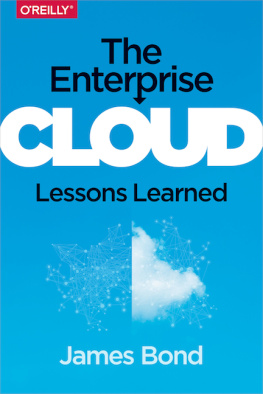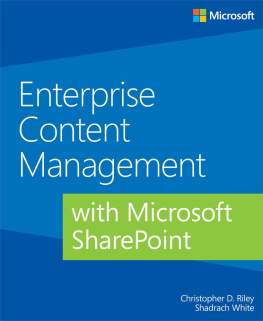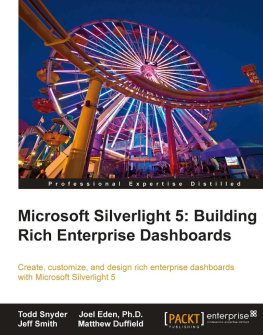Praise for Building Products for the Enterprise
Its the rare company that achieves product-market fit in enterprise software, and many books have been written about that magical customer discovery process. But until now, there has been no guidebook for the scaling phase that follows. In enterprise software, initial product-market fit only means a growing pile of demands from users, customers, and prospects. In their book, Blair and Ben lay out the key principles of product management that allow companies to conquer the software markets they discover, rather than getting lost in a product maze of their own creation.
Andrew Montalenti, Cofounder and CTO of Parse.ly
Great product managers are master jugglers and expert tea leaf readers. This book is a guide in how to perfect both. I recommend it to anyone looking to learn more about product management for enterprise software.
Joe Colopy, CEO/Cofounder of PeopleLove CEO/Cofounder of Bronto Software
Building Products for the Enterprise is one of those rare books that really helps you understand a particular jobthat of product management. Product management can be the glue that holds the entire organization together when done well, and it is one of the most exciting and entrepreneurial career opportunities. Read this book if you are interested inand want to masterthe field.
Brett A. Hurt, founder of Bazaarvoice, Coremetrics, data.world, and Hurt Family Investments
There are a lot of product management books about startups and how to introduce product management to your company. But where are the books about product management at large enterprise SaaS companies? I was sold on this book when I encountered the accurate metaphor for the job: the Product Manager as a sheepdog. Thats who we areProduct Managers trying to steer the herd to the best of our ability on the path toward growth, disruption, and SaaS domination. Building Products for the Enterprise is an excellent how-to for Product Managers who have found themselves at these growing enterprises where product management is encouraged (and expected) to truly be a business driver.
Kathryn Murphy, Vice President of Product Management,
Salesforce Commerce Cloud
Ben and Blair are donating a portion of their proceeds from this book to the charities of their choice below. We encourage all of our readers to learn about and support these worthy organizations.
The New York City Rescue Mission is New Yorks oldest homeless shelter. It exists to provide help and hope to the hungry, homeless, and hurting men and women of New York City. Learn more at NYCRescue.org.
The International Rescue Committee is the worlds preeminent refugee aid organization. The IRC helps people whose lives and livelihoods are shattered by conflict and disaster to survive, recover, and regain control of their future. Learn more at Rescue.org .
Building Products for the Enterprise
by Blair Reeves and Benjamin Gaines
Copyright 2018 Blair Reeves, Benjamin Gaines. All rights reserved.
Printed in the United States of America.
Published by OReilly Media, Inc. , 1005 Gravenstein Highway North, Sebastopol, CA 95472.
OReilly books may be purchased for educational, business, or sales promotional use. Online editions are also available for most titles (http://oreilly.com/safari). For more information, contact our corporate/institutional sales department: 800-998-9938 or corporate@oreilly.com .
- Editors: Angela Rufino and Meg Foley
- Production Editor: Nan Barber
- Copyeditor: Octal Publishing, Inc.
- Proofreader: Sonia Saruba
- Indexer: Ellen Troutman-Zaig
- Interior Designer: Monica Kamsvaag
- Cover Designer: Karen Montgomery
- Illustrator: Rebecca Demarest
- March 2018: First Edition
Revision History for the First Edition
- 2018-02-26: First Release
See http://oreilly.com/catalog/errata.csp?isbn=9781492024781 for release details.
The OReilly logo is a registered trademark of OReilly Media, Inc. Building Products for the Enterprise, the cover image, and related trade dress are trademarks of OReilly Media, Inc.
While the publisher and the authors have used good faith efforts to ensure that the information and instructions contained in this work are accurate, the publisher and the authors disclaim all responsibility for errors or omissions, including without limitation responsibility for damages resulting from the use of or reliance on this work. Use of the information and instructions contained in this work is at your own risk. If any code samples or other technology this work contains or describes is subject to open source licenses or the intellectual property rights of others, it is your responsibility to ensure that your use thereof complies with such licenses and/or rights.
978-1-492-02478-1
[LSI]
Foreword
Product management is hot! Why? A lot of reasons, not the least of which is the growing primacy of product, where many of our sources of modern competitive advantage are found in products that utterly delight customers. But I also credit Google and the wildly successful product management organization it has built. Perhaps without equal, Google has hired and trained wicked smart people who built some of the most recognizable and delightful products we all know and use. Many are now CEOs or venture capitaliststhe power brokers in our current technology ecosystem. Much of the content around product management is driven by this hallowed community. Im fortunate to work closely with two individuals with this pedigree and have encountered many more, and Im qualified to say they are the real deal.
Yet, their background is different than mine. Google is a consumer-first companyat least in its early days. Some Google product managers have interacted with sales, but many have not. Much of the idealism that I read about is inspiring to me, yet it doesnt reflect the reality that Ive faced trying to be successful in my past. Not all of us live in a world where we can A/B test something in Google search and get millions of datapoints in an hour.
The reality is that enterprise or B2B product management is its own beast. And its an important one. Enterprise product management is driving our economy. We are designing the future of our human resources departments, our supply chain, advertising technology, data centers, and generally all major infrastructure.
As I read this book, I smiled. I smiled because the stories and ideas resonated so closely with my experience. This is a book written for me. Who am I? Ive had the pleasure of being in enterprise product management since I began my career over 20 years ago. Ive led product teams, and now Im the CEO for a company whose customers (and users) are primarily product teams. These are my people. If youre reading this, theyre likely yours, too.
But theres no degree in enterprise product managementat least no degree that Ive found. Im very familiar with programs like Pragmatic Marketing and others that have some good training. But, until now, I hadnt found content that perfectly captured the job of enterprise product management.
If you are an enterprise product manager, enjoy this. This may well become our bible. If you arent an enterprise product manager, welcome. Im biased, but I feel there is no better role. For me, it has been incredibly rewarding, an amazing stepping stone for any and all ambitions, professionally and otherwise. Other product people understand what I mean.
Enjoy!
Todd Olson, CEO, Pendo.io,
Raleigh, North Carolina
Preface
If youre new to software product management, or just looking to learn more about it, you might naturally do a search on the web on the topic. Brew some coffee first, though, because youll get a lot of stuff back. Some of it will be good; some kind of interesting but incomplete; and a large swath of it, frankly, will be clickbait claptrap. (In other words, a pretty typical breakdown on tech industry topics.) Over the years, Ben and I have taken to sending each other links to particularly egregious examples of bad or amateurish product management advice that we stumble across. One thing weve noticed is that even the good stuff is usually geared toward the startup community and consumer tech world, which isnt where we live. (Literallyneither of us lives in Silicon Valley, either.) As a result, as product managers in enterprise software, weve mostly had to figure this stuff out for ourselves.

